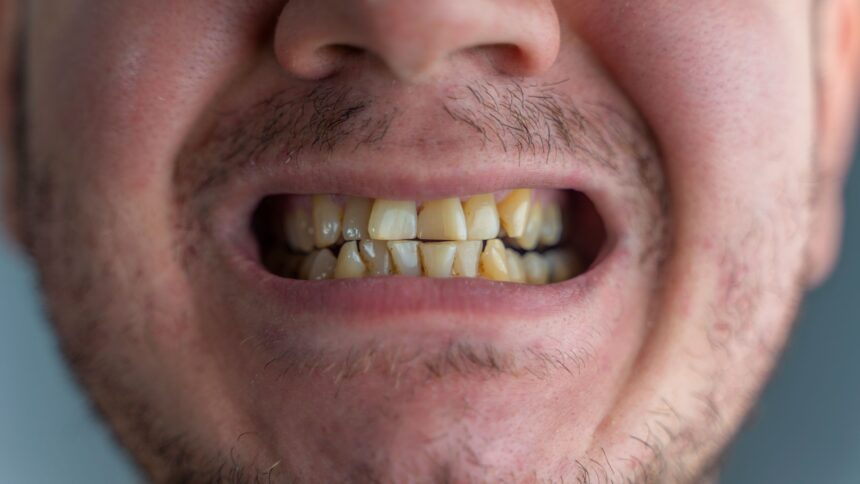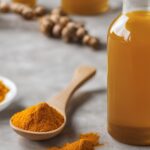Turmeric, the golden spice, has been a staple in many cuisines around the world, particularly in Indian and Middle Eastern cooking. Its active compound, curcumin, has been touted for its numerous health benefits, from reducing inflammation to improving cognitive function. However, with the growing popularity of turmeric-based drinks and supplements, a pressing concern has emerged: does turmeric stain your teeth?
The Science Behind Turmeric Staining
Turmeric contains a powerful pigment called curcumin, which is responsible for its bright yellow-orange color. This pigment is highly lipophilic, meaning it readily binds to oils and fats. When turmeric comes into contact with teeth, the curcumin molecules can bind to the tooth enamel, causing discoloration. The extent of staining depends on various factors, including the concentration of turmeric, the duration of exposure, and the individual’s oral health.
How Turmeric Staining Occurs
When you consume turmeric, the curcumin molecules can penetrate the tooth enamel and bind to the dentin, a layer of tissue beneath the enamel. This binding process can cause the teeth to appear yellow or orange, especially if good oral hygiene practices are not followed. The staining can occur through various routes, including:
- Food and beverages: Consuming turmeric-infused foods and drinks, such as golden lattes or curries, can lead to direct contact between the curcumin and tooth enamel.
- Supplements: Taking turmeric supplements or capsules can also introduce curcumin into the mouth, increasing the risk of staining.
- Mouthwash and rinses: Using mouthwashes or rinses containing turmeric can expose the teeth to curcumin, leading to staining.
Factors Influencing Turmeric Staining
Several factors can influence the likelihood and severity of turmeric staining:
- Concentration of turmeric: Higher concentrations of turmeric or curcumin increase the risk of staining.
- Duration of exposure: Prolonged exposure to turmeric can lead to more pronounced staining.
- Oral health: Poor oral hygiene, gum recession, or tooth decay can increase the susceptibility to staining.
- Dental work: Dental restorations, such as fillings or crowns, can be more prone to staining due to the materials used.
Preventing and Removing Turmeric Stains
While turmeric staining can be a concern, there are ways to prevent and remove these stains:
- Good oral hygiene: Regular brushing, flossing, and dental cleanings can help prevent staining.
- Rinse with water: Rinsing your mouth with water after consuming turmeric-based products can help reduce the risk of staining.
- Use a straw: When consuming turmeric-based drinks, using a straw can minimize contact between the curcumin and teeth.
- Desensitizing toothpaste: Using a desensitizing toothpaste can help remove stains and reduce tooth sensitivity.
- Professional cleaning: Regular dental cleanings can help remove stubborn stains.
Conclusion
Does turmeric stain your teeth? The answer is yes, but with proper oral hygiene practices and awareness of the factors influencing staining, you can minimize the risk of discoloration. By understanding the science behind turmeric staining and taking preventative measures, you can enjoy the health benefits of turmeric while maintaining a healthy, stain-free smile.




